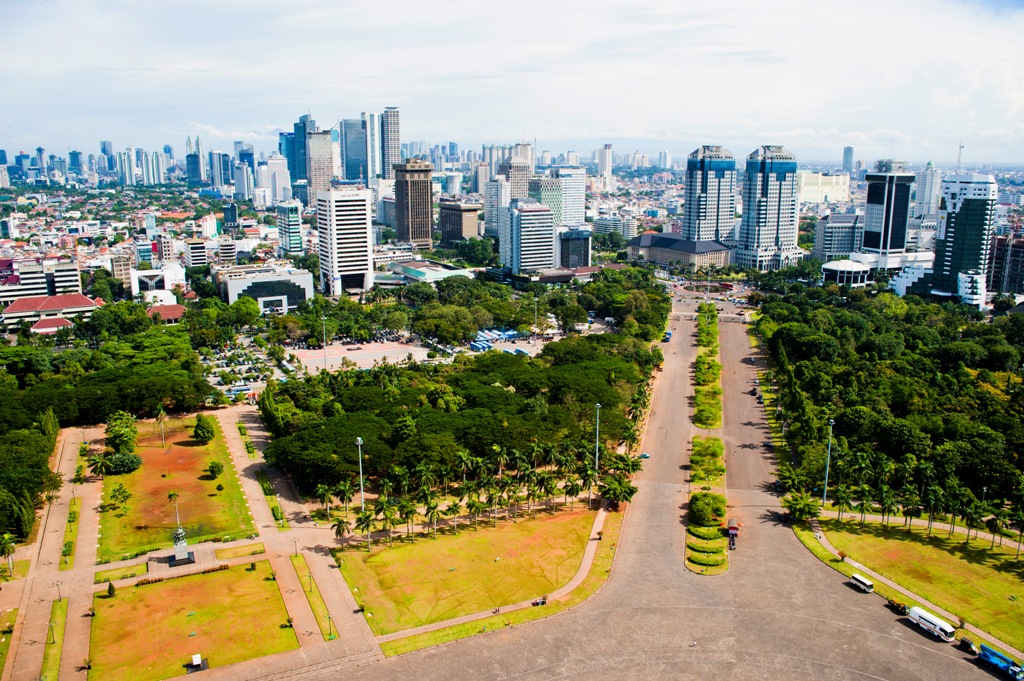
ANN/THE JAKARTA POST – Investors continue to show strong interest in properties in Jakarta and the surrounding Greater Jakarta metropolitan area despite the construction of the country’s new capital located in East Kalimantan, according to property consultancy Jones Lang LaSalle (JLL) Indonesia.
Surabaya in East Java and Bali also emerged as alternative markets attractive for both foreign and local investors, JLL said.
“We see strong inquiries for property investment in Indonesia during the second quarter after the election concluded (in February). Investors remain viewing Greater Jakarta as the strongest location as it’s already an established market,” said JLL Indonesia capital markets senior director Herully Suherman during a quarterly media briefing.
While the future capital city of Nusantara (IKN) held promise, Rully noted it is expected to have minimal immediate impact on Jakarta. “Even the state government realises that (the city) is a long-term development,” he added.
The real estate market within Jakarta and its periphery area has remained robust as it is mainly driven by commercial considerations rather than external influences, such as Nusantara, he explained.
In the second quarter, Rully pointed out that investors focused on six key sectors, namely landed residences, office buildings, hotels, serviced apartments, retail and alternative properties like schools, hospitals, retail, senior living centers and gas stations.
Hotels, especially luxury accommodation in Jakarta and Bali, remained in high demand amid the limited supply and the serviced apartments also proved attractive owing to its strong yields.
The retail sector witnessed keen interest from international brands, driven by occupancy rates exceeding 90 percent in mid-to-upper-scale malls.
Greater Jakarta was a prime target for these players, Rully noted, but investors remained “picky” with the location chosen and the size of the location chosen.
Businesses have long prioritized commercial factors when making investment decisions, with a strong population often cited as a key driver.
Jakarta itself is home to a staggering 11 million residents and is projected to swell to over 25 million by 2035 because of robust economic and urban growth, according to Bandung Institute of Technology (ITB) geologist Heri Andreas.
“The density growth would be much greater if it’s combined with Greater Jakarta activity,” Heri told The Jakarta Post.
Greater Jakarta is estimated to house a population of 35.4 million people, ranking as the second most populous urban area after Tokyo-Yokohama, Japan, according to Demographia.
The population boom, coupled with the megacity’s growing stature as the nation’s prominent business hub, has kept the city an attractive destination for investment.
Indonesian Shopping Center Association (APPBI) chairman Alphonzus Widjaja told the Post on July 31 that investors were more interested in building new malls in Jakarta as it shifted its focus to becoming a global city while they were less inclined to build in Nusantara.
The small population of the nation’s future capital in East Kalimantan, which is still under construction, means there will be a limited number of customers, Alphonzus said.
This prompted the group to request more incentives for local investments “to minimize losses and prevent big deficits as the population grows.”
Businesses had blamed concerns over the potential market in the Nusantara Capital City (IKN) for the private sector’s reluctance to invest in the nation’s new capital.
Indonesian Employers Association (Apindo) chairwoman Shinta Kamdani said on June 26 that the future capital city’s small population had become the main obstacle keeping investors from seeing it as a lucrative investment opportunity, adding that the government needed to address this issue.
The government envisions the future capital city to be home to two million people by 2040 before increasing to more than four million in 2060.
This year, the planned city’s inhabitants are projected to be around 250,000 people this year, according to the IKN Authority this February.
Cautious approach
Investors started to adopt a cautious approach in the second half of the year, closely monitoring Jakarta’s market to ensure sustainable returns amid the potential impacts of a United States recession on Indonesia’s economy.
Anxiety over a potential slowdown in the US economy intensified Monday, as last week’s market retreat escalated into a global sell-off.
“Investors are becoming more detailed in their calculations, considering factors like purchasing power and market growth potential,” Rully said. “They will analyze how many units can be sold and the duration of the sales period.”
This increased scrutiny was evident in the warehousing sector, where decision-making timelines extended to three months compared to the previous one-month timeline, according to JLL Indonesia logistics and industrial head Farazia Basarah.


